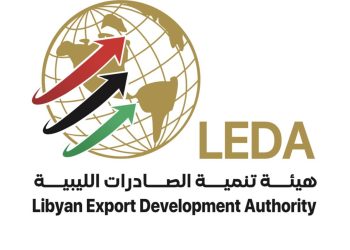By Sami Zaptia.

Tripoli, 13 May 2014:
In February 2013, the outgoing chairman of the LIA, Mohsen Derregia was removed by the . . .[restrict]then Prime Minister and head of the LIA’s Board of Trustees, Ali Zeidan, and a temporary head, Ali Hibri, the Deputy Governor of the Central Bank of Libya and LIA’s then Board member, was installed while the search begun for a long term replacement.
Today, experienced international Libyan banker, Abdulmagid Breish, is the new chairman of the LIA, inheriting an organization that has been operating under decades of dictatorship with little transparency or accountability.
The Qaddafi regime used to run the LIA as if it were their personal company, with most investment decisions politically motivated or based on personal interests. The expectations of a democratic, post February 17th Revolution Libya have changed, however. The highly expectant Libyan electorate with political power and leverage, expects accountability, transparency and a return on investments.
Breish comes with an impressive cv, having held top executive posts in international banking since 1975 that include the Libyan Foreign Bank, Arab Banking Corporation in Bahrain, Tokyo, and London, and directorships at the Bahrain Stock Market, the Union Bank of Bangkok, the International Bank of Asia in Hong Kong, Banco ABC Brazil, Vice Chairman of the Arab banking Association and Chairmanship of the Foreign banks and Securities Houses Association both in London.
He has wasted no time together with LIA’s Board of Directors in continuing the reforming steps that were started by his predecessor. The LIA and its hundreds of subsidiaries has investments flung far and wide, and accounting for them all has proved a challenge that has needed some fundamental internal reforms, and much needed international expertise.
Creating a new image
On the public perception of his organization, Breish said “LIA’s Board has resolved that we have to communicate with all our stakeholders. There is confusion in the market. People do not really know what is going on. We have started to communicate while implementing our restructuring strategy to strengthen LIA’s core capacities, and prepare LIA to invest and obtain the best returns on its investments. But it needs qualified personnel in order to achieve this”.
Breish admitted that in the Libyan public’s perception “there is confusion as to the LIA’s role and its position. There is generally no distinction between the LIA and other state investment agencies such as the Economic and Social Development Fund (ESDF), or LIA’s investments abroad and Libya’s stolen funds during the Gaddafi regime”, he explained.
Amending Law 13
With regards to his reform plans, Breish stated that LIA’s strategy and reformation plans, as approved by its Boards of Trustees and Directors want to start from the foundations of the LIA. “The LIA was established under Law 13 which is very general”, he explained. The main aim of amending Law 13 is to refocus the law on the specific three mandates of the LIA, continued Breish.
“Generally speaking LIA was established to provide an alternative source of income to its traditional reliance on crude oil and gas revenue. To assist the local economy and private sector through strategic mega projects in key fields, and to assist the government finances in times of budgetary deficits. Therefore Law No. 13 has to address these requirements with clarity, hence the need for its amendment”.
“Following from this, LIA proposes through the redrafting of Law 13 to establish a specific fund called the Future Generation Fund (FGF) with a mandate and by laws to invest all cash, equities and bonds that LIA has abroad, outside the oil and gas sector”.
“For example, it refers to the LIA as ‘the sovereign fund’. The LIA consists of its various subsidiaries such as LAFICO, LAP, LTP, Oilinvest and the LLIDF, totaling 550 companies, plus the cash funds given to it at the outset. These cover a wide range of investments from hotels, factories, agricultural land, tourism to trade – spread all over the world. This is what we inherited, and these have to be restructured”, he emphasized..
LIA’s investment process
Breish also explained that the Board of Directors has resolved to reform the way the LIA makes its investment decisions – taking it away from the unaccountable and haphazard style associated with the Qaddafi era.
“We have taken the decision not to invest ourselves and to abolish individual decision making, and to use “the best of breed” investment advisors and external fund managers when choosing our investments. Investment decisions will be taken by a committee or by the Board of Directors – and not by individuals”, he explained. “We want to take decisions based on evaluations and feasibility studies “. FGF will be managed this way.
The LLIBF
“With regards to the existing LLIBF fund, which is a fund that invests locally”, Breish continued, “it will have a specific mandate. It will not be “everything to everyone” it will concentrate on “mega projects” using the PPP concept so that both the local and international private sector can participate using the “best of breed” companies to manage, invest and transfer technology into projects in Libya that touch and benefit the Libyan national”.
LIA to invest through Libya’s Stock exchange
Moreover, Breish explained that “the LIA wants to pass 20-30 percent of its future LLIDF investments through Libya’s nascent Stock Exchange”. This will include, for example the multi-billion dollar projects such as a medical city “which would have a direct impact on the everyday lives of Libyans. With this we want to create a prototype”, he explained, “a large complex of specialist hospitals and best of breed diagnostic centres, hotels for out of town patients, a medical faculty for nurses and medical middle management”.
“Later”, Breish continued, “we would set up smaller satellite units across the country to integrate them into the core. All this using the best foreign management, to set it up, transfer technology, and train Libyans. These mega projects would also bring value added employment to Libyans. LLIDF’s management is currently working on these plans and in due course they will be able to communicate to the public in greater detail ” he stressed.
With regards to the smaller local private sector’s role in this vision, Breish said that the vision includes allocating space for them to establish local clinics and to locate on site and either just rent space or even hire very expensive equipment.
Allaying fears about mega business suffocating the small local business sector, which represents most Libyan business entities, Breish assured that “we will not compete with the small local private sector. We want to create the environment for them to flourish”.
The Budget Deficit Fund (BDF)
Another major reform that LIA’s Board has proposed in the redrafting of Law 13 is the introduction of a Budget Deficit Fund (BDF) as suggested by the IMF and the World Bank.
This fund would invest Libyan reserves set aside that are surplus to the Government annual budget and to the Central Bank of Libya reserve requirements. “This would be a short term investment fund as it is designed to remain liquid”, Breish said, explaining the concept. “If the government faces a deficit in any given budgetary fiscal year it can “borrow” from this fund for the fiscal year in question. This ensures a greater degree of accountability and transparency and eradicates any conflict of interests”, stressed the new LIA chairman.
LIA ‘s transformation strategy and 8 month Review
Breish explained that the LIA’s Board has been conducting a thorough post-Qaddafi era assessment and review in order to carry out a comprehensive transformation of LIA. In order to do this, two international consultants, Deloitte and Oliver Wyman had been brought in by his predecessor Mohsen Derrega.
Breish revealed that the LIA’s accounts had not been audited since 2007, which were then valued at cost, at a value of US$ 65 billion. The financials also did not comply with International Financial Reporting Standards (IFRS), and no valuation was made of its 550 companies since 2007.
Today the revaluation has been completed, he confirmed, and the assets of the LIA are valued at US$ 66 billion and furthermore, these assets are all accounted for.
Moreover, Breish revealed that during the revaluation process Deloitte were instructed to create a Data Repository Centre to organize all the LIA ‘s data and documentation and to “red flag” anything that looked suspicious and refer it to its specialist forensic team for the taskforce looking at litigation files.
There was much corruption, mismanagement and bribery
With regards to red flags, Breish admitted that during the Gaddafi era there was “mismanagement, bribery and corruption in LIA. The institution was taken advantage of, abused and used for personal advantage by some employees and I must say that the majority of LIA’s staff were largely neglected.”
On the issue of litigation Breish said that “in addition to the Goldman Sachs and Societe Generale court cases that were lodged in the High Court in the UK, LIA is assessing other files and compiling related data, and if some of these files need to be taken to court, we will do so”.
The role of International Consultants
With regards to the work to be done by consultants Oliver Wyman, they have been instructed to report their conclusions and findings on the LIA and to benchmark the LIA with other international sovereign funds. “We want to know where the gaps are”, explained Breish.
“Together with its international consultants, LIA’s Board and management have analyzed, compiled and articulated a new transformation strategy, to include the creation of the 2 new specific funds, reforming law No. 13, assessing the skill base, establishing a new IT platform, a new data repository centre, the establishment of corporate governance and corporate ethical standards benchmarked against the “Santiago Principles” and best practice at leading sovereign funds that have been in the business for decades, the introduction of International Financial Accounting Standards, IFRS to all 550 companies under LIA, that to date have not been complied with since 2007, and the drafting of new internal procedures, and organizational blue print.”, stressed Breish.
The restructuring would involve the LIA’s core competencies, and organizational structures, key positions, assessing current staff and a “360 degree review”, explained the LIA chairman.
There are about 14 different task forces working on a variety of issues, including assessing the LIA’s 550 companies. The assessment will help decide which of these companies will be liquidated, and which companies will be restructured, merged and/or promoted to remain under LIA.
Role of LIA’s London office
Another part of the new strategy would be to expand the LIA’s London office. Breish explains that all the LIA’s litigation cases will be handled from London “where the courts, lawyers and expertise are based”, Breish explained.
The other key decision taken by LIA’s Board is to locate the LIA’s investment management team in London. All the investment analytics, research, studies, evaluations etc would be made in London, however, Breish stressed that “they would not be making any investment decisions”.
“Those decisions would be made through the related investment committee or Board here in Tripoli”, he added emphatically, countering some reports that the LIA was “moving its Head Office to London”.
“LIA’S London OFFICE will be a centre of excellence providing investment advisory service, logistics, recruitment and training support and of course the centre for our litigation management. Libya is and will always remain the head office”, the chairman said emphatically.
Training and employing Libyans
Another important part of the LIA’s new strategy Breish was keen to highlight was the training of Libyans, “who will be the senior executives and managers of tomorrow”, he explained. Breish, nevertheless, stressed that the LIA will not be “an employment agency”. Libyans will be proactively trained and employed by the LIA, but they will be appointed according to their skills and according to highly set job specs and criteria.
Breish was keen to stop the Libyan practice of nepotism long associated with the old regime. He is also aware that for the LIA to succeed on a par with the leading sovereign wealth funds, it has got to employ the best skill base there is. Of course, LIA will also develop and train its current staff and in the future bright young Libyans that have potential and the grades straight out of university. It will also rely on international professional staff to man technical positions in Libya and elsewhere in the LIA group.
The LIA’s Disaster Recovery Centre
On 10 October, former Prime Minister Ali Zeidan was kidnapped at around 3.30 am from his room at Tripoli’s Corinthia hotel. The shock of the country’s Prime Minister being kidnapped had added significance for Breish and the LIA. Libya’s incumbent Prime Minister, who ever that might be at the tie, is the Chairman of the Trustees of the LIA, the body that ultimately appoints the head of the LIA.
Breish revealed that the next day after Zeidan’s kidnapping he called for an emergency board meeting in order to review the impact this may have on LIA, its operations, and ability to continue operating. The Board also discussed what necessary measures it had to take to safeguard LIA’s assets and operations. The Board concluded by establishing a Business Continuity Office outside Libya to enable LIA to operate freely in case it was not able to out of its Tripoli offices for whatever reasons.
“This is in case we are unable to operate in Libya. There could be power cuts, or we could be prevented or unable to enter the building where our offices are (as happened recently in Tripoli Tower). There could be a communications breakdown or to the extreme case of total breakdown of law and order “, Breish explained.
“The LIA is a dynamic organization, and it has the sensitive responsibility of safeguarding the assets for future generations of Libyans. There are decisions to be made every day and deposits to be renewed – for example. We need to be able to operate without disruption and intimidation”.
The Business Continuity Office looking for a foreign home
Whereas the LIA chairman was clear that London would be the centre of its litigation and investment evaluation and Libya would be its headquarters, where to base the new Business Continuity Office was still unresolved.
Breish admitted that no less than five locations were being considered. These included London, Monaco, Luxembourg, Dubai and the island of Malta. They all had their advantages and disadvantages, he explained. Malta was still a very strong runner he explained, for example, with it being part of the EU and its location.
The LIA chairman stressed, however, that the LIA had some specific demands that not all the locations were prepared to meet. The issue of accessibility and the issuance of visas for Libyan passport holders, flight time, tax exemptions, sovereign immunity, the legal status of the business Continuity Office – were all still being considered.
“Some countries were prepared to offer us more incentives than others in order to attract us into locating our Business Continuity Office in their country”, he explained. He stressed that a decision on this had to be taken quickly in order to commence setting up the operation. Pushed to name a favourite location, Breish said Malta is the preferred location so far, but that there were a couple of issues that the Maltese Government were still deliberating on.
Lost Libyan assets
Asked if there were still untraced Libyan misappropriated assets out there and if he could estimate their value, Breish said “I do not think anybody knows the exact value. Yes there are such assets abroad that have been misappropriated by members and cronies of the former regime. I am sure there are. Where and how much – I do not know”.
“But”, he continued rhetorically asking and answering his own questions, “is there a professional way to find some of these funds? Yes. Will it take time? Yes. And it will have to be done in a very professional manner using the best international lawyers and investigators”, Breish explained.
“There is a process to be followed in tracing such assets abroad and this needs to be done within a framework that is followed internationally. The process should start with a single unit in Libya entrusted to manage the plan and process of repatriating such assets back to Libya. The Libyan Public Prosecutor or Attorney General’s office normally would support the process by initiating when requested to do so, the relevant court cases and red cards that are a precursor to any international enforcement agency follow up”.
“The Libyan Foreign Ministry also has a supporting role to play, as it is the recognized presence of the Libyan State abroad, and the Finance Ministry also should support the initiative as it holds the accounts and statistics from which the initial transfers emanated in the first place”.
“However”, he continued “to run efficiently, it has to be a professional process and with the skill base that understands accounts, international banking transfers, and that has international banking formal connections, as the majority of these funds are either in bank accounts abroad or are invested in funds or real estate”, the LIA chairman stressed, in part answering the public clamor for lost assets to be instantly recovered.
The mandate to trace lost assets
Asked who he thought should be given the mandate in Libya of tracing Libyan Government misappropriated funds, Breish said it can only be the “Central Bank of Libya, supported by the Public Prosecutor’s Office, and by the Foreign and Finance Ministries.”
“The Central Bank of Libya has a money laundering function and a department recognized by international financial regulators, and it is the formal body most accepted by Foreign Central banks, Financial regulators, the World bank and IMF.” Breish would not, however, despite being pressed, speculate, as to the estimated amounts of Libyan assets that might be misappropriated and held abroad.
With regards to the relationship that Breish hopes to create between the LIA and its ultimate stakeholders, the LIA chairman said that “LIA’s Board of Directors and management are committed to engage with its stakeholder audience in order to report the facts and key developments as they occur. We are in constant contact with the General National Congress Investment Committee, the Audit Bureau, the Public Prosecutor’s Office, the Finance Ministry, the Central Bank of Libya, the Foreign Ministry, the Fiscal Regulatory Authority and our Board of Trustees”, the LIA chairman concluded.
[/restrict]








